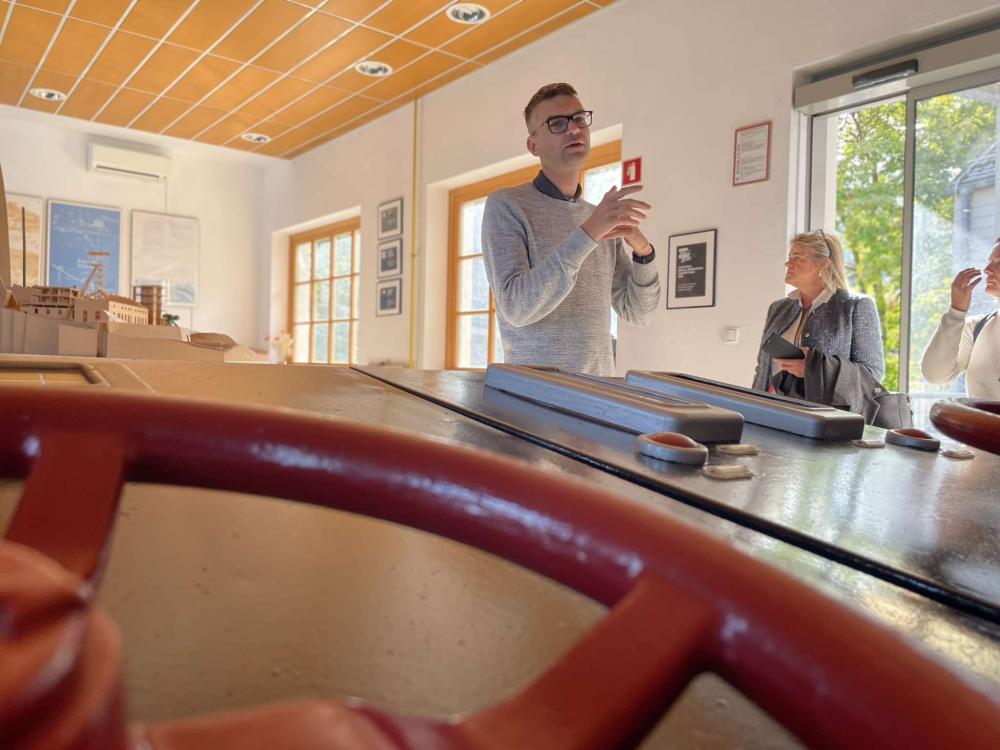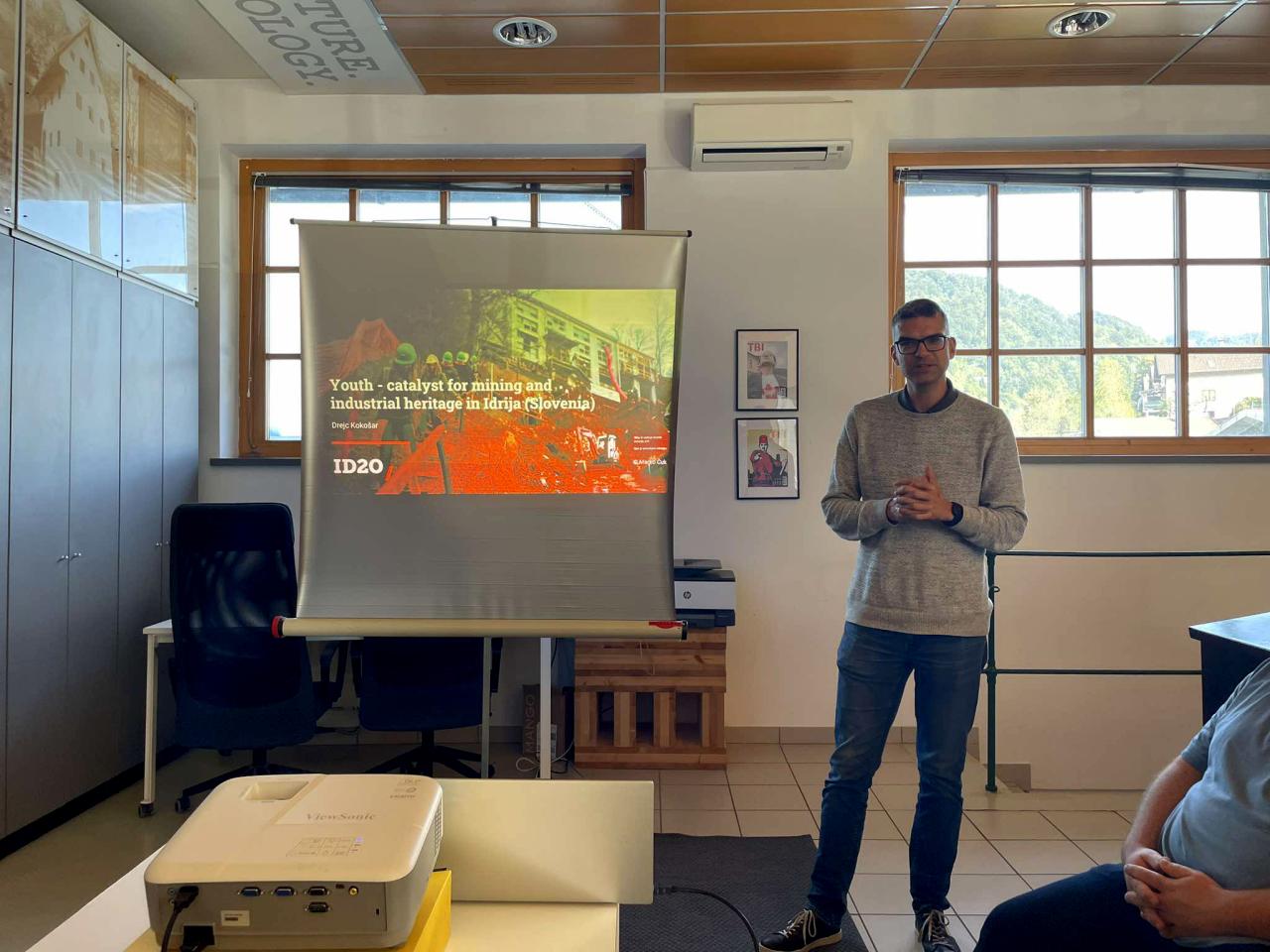
1.How does ID2020 engage young people in entrepreneurial initiatives, especially those connected to cultural heritage?
ID20 has been involved in organising many activities in the field of cultural heritage. Recently we have or still will organise workshops within the project Forma Rural (Erasmus+) on marketing, digital marketing, design, opportunities and networking. We have also organized interviews with artisans and craftsmen, where they talked about their work. Based on this, we organized 12 workshops where they presented their work to the community, which was an excellent opportunity for networking and getting new customers.
In the field of gastronomy, we organize an Idrija Žlikrofi Festival with more than 5000 visitors annually. We work directly with different producers of Idrija Žlikrofi and have also obtained a special pasta trailer which is used for increasing the brand of Idrija Žlikrofi and Go! Pasta (financed by an Interreg IT-SLO project).
In 2020, 2021 and 2022, we have organized a HeritageHack, a hackathon in the field of the cultural heritage. Although it was organized online, it was aimed at the concrete (entrepreneurial) challenges within the cultural heritage area. More than 100 participants took place in the events.
In 2021, we have also organized a special cultural heritage incubator programme, HeritageLab. More than 10 participants have taken part in the unique incubator programme, which has been also recognized as important by the European Commission with an award for the best EU Social Innovation 2018.
As a future goal in our work, we would like to organise a retreat for digital nomads in Idrija and surrounding area. Having implemented the Erasmus+ KA2 Nomadland, we have realized that we can attract young people to rural areas by focusing on urban people, who search for new experiences in their life. We will design a retreat and business model for it within the Secretour Horizon project (2025-2026).
2.Can you describe your role and the work your organization does in the tech entrepreneurship ecosystem?
Recognizing the important aspects of cultural heritage as “unpolished diamonds”, we see the ID20 Institute as an important factor in accelerating or developing new solutions to cultural heritage.
Based on our experience, NGOs have an important role in developing the area of cultural heritage. Based on our experience, in the rich and versatile field of cultural heritage, there’s a lack of organisations that would work at the crossroads of entrepreneurship, community work, youth work or any specific similar field.
By recognizing and highlighting the increased and troublesome outmigration of young people from rural and postindustrial areas, we base a lot of work on tackling this challenge, which is also crucial for the area of Idrija.
One of the areas where we work future possibility of work is in creating retreats for digital nomads and artists and consequentially developing new tourism solutions in Idrija and the surrounding area.
3. Can you share some key challenges you faced when integrating cultural heritage with tech entrepreneurship in Idrija?
Based on our experience, the work in the field of cultural heritage is very unique and should be tackled with extra work. The main challenges:
COMPLEXITY. It’s important to recognize the complexity of cultural heritage which includes many different target groups (local community, heritage institutions, experts …). Any potential solutions should be tackled with extra care as numerous stakeholders should or might take part in the process of developing and implementing entrepreneurial ideas. Ensuring that the (tech) solutions are accepted by both the local community and a broader market can be a significant hurdle.
FUNDING AND RESOURCES. Securing funding for projects which combine entrepreneurship and cultural heritage might be very difficult as there are not a lot of funding solutions. Heritage institutions don’t have any specific funding for any new ideas or solutions.
LACK OF UNDERSTANDING AND SKILL GAPS. By working in the field of cultural heritage, it’s important to cooperate with experts and heritage institutions which often don’t have any entrepreneurial or tech knowledge and skills. Although they understand the role of new solutions, they might not have any knowledge or skills in developing new entrepreneurial solutions.
REGULATORY HURDLES. The area of cultural heritage is full of regulations which entrepreneurs need to know if they want to work seriously in the field.
By working with the participants within the HeritageLab and HeritageHack, we have realized that all these challenges have an enormous impact on the participants. Although we have provided support to them, there have been almost no participants who would continue working in the field after initially starting an idea as there were so many obstacles and there was no long-term support for their future development.
4. How does ID20 approach the challenge of retaining skilled young talent in a rural area like Idrija, and what strategies have been successful in keeping the local workforce engaged and connected to the community?
By working in the cultural heritage, especially in remote, rural areas like Idrija, it’s important to think big, but do small steps as you need to listen to the opinions and feedback of many stakeholders (community, heritage experts/institutions, older people). In the cultural heritage field, trust is a very important value, as the local community has an important role in developing the product or any other solution. It’s also important to work with many different stakeholders and work step by step towards the solution.
There’s also an opportunity to tackle the challenge of outmigration by attracting young people and not only trying to keep them in rural areas. We see a solution in attracting digital nomads, especially establishing a retreat for them.
Unfortunately, there’s no specific scenario (or we haven’t yet “developed” it) how can you quickly gain success in tackling the challenges in cultural heritage area.
5. What advice would you give to other cities looking to combine heritage and innovation to foster youth engagement?
When working in the cultural heritage area, don’t forget to include the local community. This means dedicated work which cannot be done in a short time and needs a lot of dedication.
As the cultural heritage field is full of regulations, it might be better if you avoid unnecessary new regulations (as a municipality) and try first to foster NGOs who could easier and quicker work in the cultural heritage area and could be much more flexible than public organisations. It’s also important to work with young people (even younger than 18 years old), who still need to develop a bond with their local community. Similar to the startups, some of them could in the future start an entrepreneurship initiative in the field of cultural heritage.


